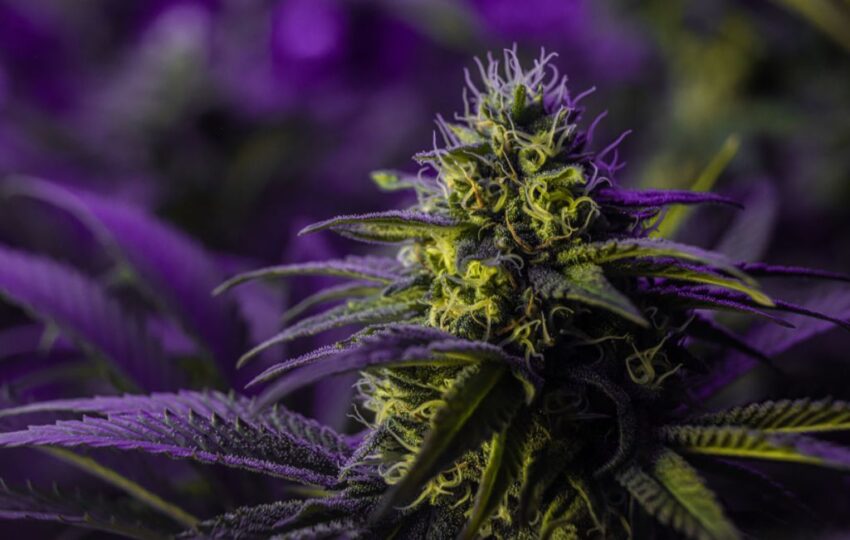In recent years, the interest in cannabis-based products has surged, with tinctures emerging as a popular choice for those seeking wellness benefits. These liquid extracts offer a versatile and discreet way to consume cannabis, appealing to both newcomers and seasoned users. This article explores the potential wellness benefits of cannabis tinctures, their usage, and the science behind them.
Understanding Cannabis Tinctures
Cannabis tinctures are concentrated herbal extracts made by soaking cannabis flowers or isolates in a solvent, typically alcohol or glycerin. This process extracts the active compounds, such as cannabinoids and terpenes, into a liquid form. Tinctures are usually administered sublingually, allowing for quick absorption into the bloodstream.
Benefits of Cannabis Tinctures
- Discreet and Convenient: Tinctures are easy to carry and use, making them a convenient option for those on the go.
- Precise Dosing: With droppers, users can control their dosage accurately, which is particularly beneficial for those new to cannabis.
- Fast-Acting: When taken sublingually, tinctures can take effect within 15-45 minutes, offering quicker relief compared to edibles.
- Versatile Usage: Tinctures can be added to food and beverages, providing flexibility in consumption methods.
The Science Behind Cannabis Tinctures
The primary active compounds in cannabis tinctures are cannabinoids, including THC (tetrahydrocannabinol) and CBD (cannabidiol). These compounds interact with the body’s endocannabinoid system (ECS), which plays a role in regulating various physiological processes such as mood, pain, and appetite.
THC vs. CBD
THC is known for its psychoactive effects, which can induce a “high.” It may offer benefits such as pain relief and appetite stimulation. On the other hand, CBD is non-psychoactive and is often used for its potential anti-inflammatory and anxiolytic properties. The choice between THC and CBD tinctures depends on individual wellness goals and preferences.
Potential Wellness Benefits
Research into the wellness benefits of cannabis tinctures is ongoing, but preliminary studies and anecdotal evidence suggest several potential advantages:
Pain Management
Cannabis tinctures, particularly those high in CBD, may help alleviate chronic pain. A study published in the Journal of Pain Research found that CBD could reduce pain and improve sleep quality in patients with chronic pain conditions.
Anxiety and Stress Relief
CBD tinctures are often used to manage anxiety and stress. A study in the Journal of Clinical Psychology highlighted CBD’s potential to reduce anxiety in individuals with social anxiety disorder.
Improved Sleep
For those struggling with insomnia, cannabis tinctures may offer a natural alternative. Some users report improved sleep quality and duration after using tinctures, particularly those with a balanced THC-CBD ratio.
Anti-Inflammatory Effects
Both THC and CBD have shown anti-inflammatory properties, which could benefit individuals with inflammatory conditions such as arthritis. A study in the European Journal of Pain demonstrated CBD’s potential to reduce inflammation and pain in animal models.
Case Studies and Real-Life Examples
Several individuals have shared their positive experiences with cannabis tinctures. For instance, a patient with rheumatoid arthritis reported significant pain reduction and improved mobility after incorporating CBD tinctures into their routine. Another user with anxiety found that a low-dose THC tincture helped manage their symptoms without causing intoxication.
Choosing the Right Tincture
When selecting a cannabis tincture, consider factors such as cannabinoid content, extraction method, and intended use. It’s advisable to start with a low dose and gradually increase until the desired effects are achieved. Consulting with a healthcare professional can provide guidance tailored to individual needs.
Legal and Safety Considerations
The legal status of cannabis tinctures varies by region, so it’s important to be aware of local regulations. Additionally, users should purchase tinctures from reputable sources to ensure product quality and safety. It’s also recommended to check for third-party lab testing results to verify cannabinoid content and purity.
Conclusion
Cannabis tinctures offer a promising avenue for those seeking wellness benefits from cannabis. With their ease of use, precise dosing, and potential therapeutic effects, tinctures are gaining popularity among individuals looking for natural alternatives to traditional medications. As research continues to unfold, the understanding of cannabis tinctures and their role in wellness is likely to expand, providing more insights into their potential benefits.
